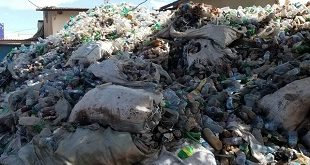
Kampala, Uganda | THE INDEPENDENT | A team of computer experts are meeting in Entebbe to develop technology to combat wildlife trafficking in Uganda. This is part of a partnership between Uganda Wildlife Education and Conservation and the United States Embassy in Kampala.
The experts are part of a team of developers, designers and project managers, meeting for Zoohackathon 2019, a computer coding event used to create applications, systems, and tools to reduce the demand for trafficked wildlife products. It is expected that this will help reduce global demand for illicit wildlife products and disrupt wildlife trafficking value chains.
The applications envisaged are those that can use phones to send alerts and messages to the different authorities in case a threat to wildlife in the community is seen.
United States Ambassador Deborah Malac observed that the introduction of advanced technology gives hope that the country will reduce the trafficking of the wild animal species. She added that wildlife trafficking does not only hamper the development and sustainability of a country’s tourism sector, but creates a negative impact on the livelihoods of local communities, and fuels corruption.
Illegal wildlife trafficking is the fourth most lucrative global crime after drugs, humans and arms, according to the World Economic Forum which estimates its value at between USD 7 billion and USD 23 billion every year. A report by the US Embassy indicates that every 15 minutes, an elephant in Africa is killed despite a ban in the ivory trade. In 2016, poachers killed more than 13,000 African rhinos and an estimated 100,000 pangolins are captured every year making them the most trafficked animals.
James Musinguzi, the Executive Director of UWEC says such technology being developed by the different experts is a clear indication that the country is tired and willing to end illegal trafficking of wildlife.
Uganda is listed as a focus country in the U.S. Department of State’s 2018 END Wildlife Trafficking Report. According to the report, sophisticated criminal networks use Uganda as a primary transit hub for illicit products – such as ivory, big cat bones and skins, pangolin scales, and live birds and reptiles intended for the exotic pet trade – that are then transported to countries across Asia and North America.
Because, the same global networks are used to traffic wildlife, humans, drugs, arms, and money, disrupting them has broader importance for security, human rights, and ecosystems.
******
URN
 The Independent Uganda: You get the Truth we Pay the Price
The Independent Uganda: You get the Truth we Pay the Price



